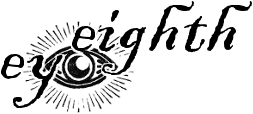This post is long overdue.
I started this blog as a place to articulate my preferences as a pen-and-paper RPG referee. Specifically, I needed to force myself to organize my thoughts and commit them to "paper." I realize now that I was embarking on a common step that so many referees have taken before me: creating my own RPG system (or hack or homebrew or whatever you want to call it).
 |
| Players following the rules during a game |
Over the course of the fall, I put my rules through their paces, using a group of players who primarily play 5th Edition as my guinea pigs. They were good sports in humoring me, and it helped that we played through a pretty interesting adventure location (The Tomb of Black Sand).
My rules started with Knave as a base and grew from there. They revolve around the core principle that the target number for any contested roll equals 10 plus the opposition's Hit Dice or Level. This feature made creating monsters on the fly incredibly easy, as I used one number to derive their relevant stats and focused more of my time on creating what made them unique.
Here are some of the other features of my rules:
- Quick and easy character generation
- Character abilities based on in-game fiction (no class archetypes or skills)
- Attribute bonuses only (no separate attribute scores)
- Six classic attributes, each with mechanical relevance
- Death and dismemberment rules
- Resting rules based around "making camp"
- Slot-based inventory system
- Character advancement based on carousing
- Experience points as a meta-currency
Booklet I - Creating a Character
Booklet II - Going on an Adventure
One caveat about this set of rules: the system puts a lot of the burden on the referee. They have to make rulings on the fly, translate monsters, and hand-craft abilities for their player characters. Getting it right takes a lot of trial and error and accumulated knowledge. Whether the referee uses this system or another to learn doesn't matter.
If I took these rules a step further, I would most likely remove Hit Points as discussed in my post Attribute Scores as Hit Points. The way that Into the Odd reduces combat turns to a single roll inspires me, but I would rather roll to hit than roll for damage. However, the ripple effect of that change would change so much more that the resulting rules would be an entirely different system.
